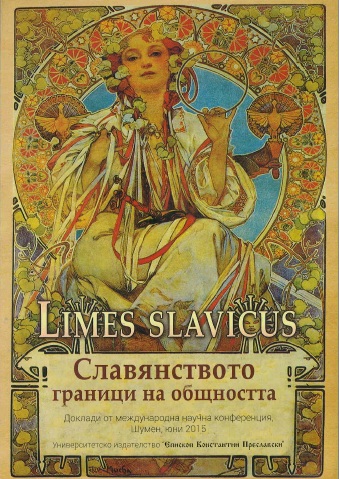Славянската литературна компаративистика в началото на ХХI в. (кризи, шансове и предизвикателства)
The Slavic Comparative Literary Studies at the Beginning of 21st Century (Crisis, Opportunities and Challenges)
Author(s): Yani MilchakovSubject(s): Language and Literature Studies, Theory of Literature
Published by: Шуменски университет »Епископ Константин Преславски«
Keywords: Crisis of comparative literature; post-modernist literary multiculturalism
Summary/Abstract: This quote from René Wellek’s famous article published in 1958 shows that for over half a century, we have been speaking of a „Crisis of comparative literature”. Analysts of this critical situation, however, do not explain which stage of the subject’s history should be regarded as the lost standard for an „ideal” stability. Among the factors driving comparative literature studies to a crisis, one can indicate the methodological conflicts between the lines of French „positivism”, German „philologism”, Russian „historicism” and the American „immanentism”. In this context, a special attention should be dedicated to the rise andfall of a number of East- European Slavic comparativist schools in the second half of the ХХ century. Today, all of them have been stricken out with a single gesture by the post-modernist literary multiculturalism. The extent to which the post-modernist literary doctrine has been able to rationalize the geopolitical gifts presented by history, however, remains an open issue. The break-up of the Soviet block and the disappearance of Yugoslavia are all parts of events and reverse hierarchies which are united not just by the prefix post-, but also by the confrontational ethnicization of the newly emerged literatures. Once there was a strong trend these literatures to identify themselves as Slavic. Nowadays, this old-fashioned identification is avoided in favor of “European” and „Central European”. In such a potentially confrontational context the comparative literature would serve as an opportunity for de- construction and new review of the national literary canons and also of the logic and the ethics of the manipulation with their values and hierarchies. Therefore attention is separately devoted to the imagology as a current trend in the Slavic and especially the post-Yugoslav comparative literary studies.
Journal: Limes Slavicus
- Issue Year: 2016
- Issue No: 1
- Page Range: 215-228
- Page Count: 14
- Language: Bulgarian

